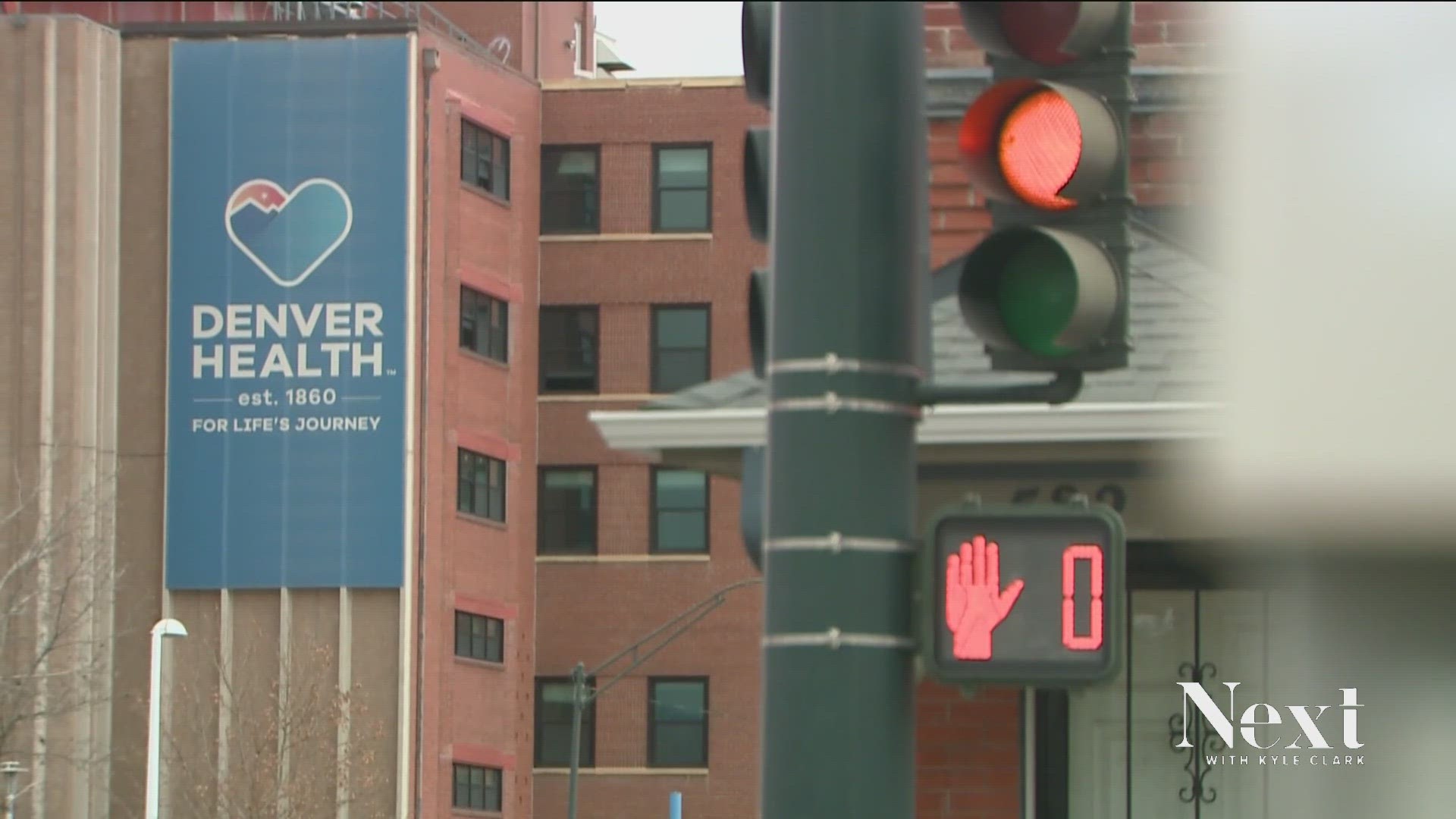DENVER — Legislatures in Colorado have fast-tracked $5 million to help keep Denver Health afloat as state health care leaders warn that the safety net hospital is nearing a financial "death spiral."
The Joint Budget Committee on Wednesday agreed to spend the money against the recommendation of their own staff, who said one-time funding can't fix Denver Health.
The hospital acknowledged the looming financial situation, saying in a statement that without long-term solutions, the hospital's trajectory is "non sustainable."
"The term is dramatic, but the reality is that unless we make changes and find long-term solutions to close the gap in uncompensated care, Denver Health will continue on a trajectory that is not sustainable to meet the needs of our growing city," a statement by Dr. Steve Federico, Denver Health's chief government and external community relations officer reads.
One of the main issues identified in budget documents and by the hospital is the hospital's "payer mix," which is the proportion of patients using commercial insurance, Medicaid, Medicare, self-paying and those who are uninsured.
According to the budget documents, "Denver Health is the state’s largest safety net hospital serving a higher proportion of Medicaid and uninsured patients than other hospitals."
More than 65% of Denver Health's patients are either covered by Medicaid or are uninsured, according to the documents.
Last year, the hospital's uncompensated care costs were $136 million. The vast majority of that money went to patients the hospital believes are citizens, but there were rising uncompensated costs for caring for migrants, too.
The state's researchers said without major structural changes, Denver Health is headed for financial failure.
The crisis isn't a surprise to Denver Health. Earlier this year, CEO Donna Lynne put pressure on state and federal leaders for more funding to pay for uncompensated care.
'If you're a legislator in Weld County, you need to understand that some of your residents are coming here to Denver Health for care, and that there's a broader responsibility that elected officials, state, county and city have to help us deal with what I think is a near crisis regarding health," Lynne said at the time.
Federico said the hospital plans to use the $5 million in additional funding to backfill some of those out-of-county uncompensated care costs.
SUGGESTED VIDEOS: Full Episodes of Next with Kyle Clark

